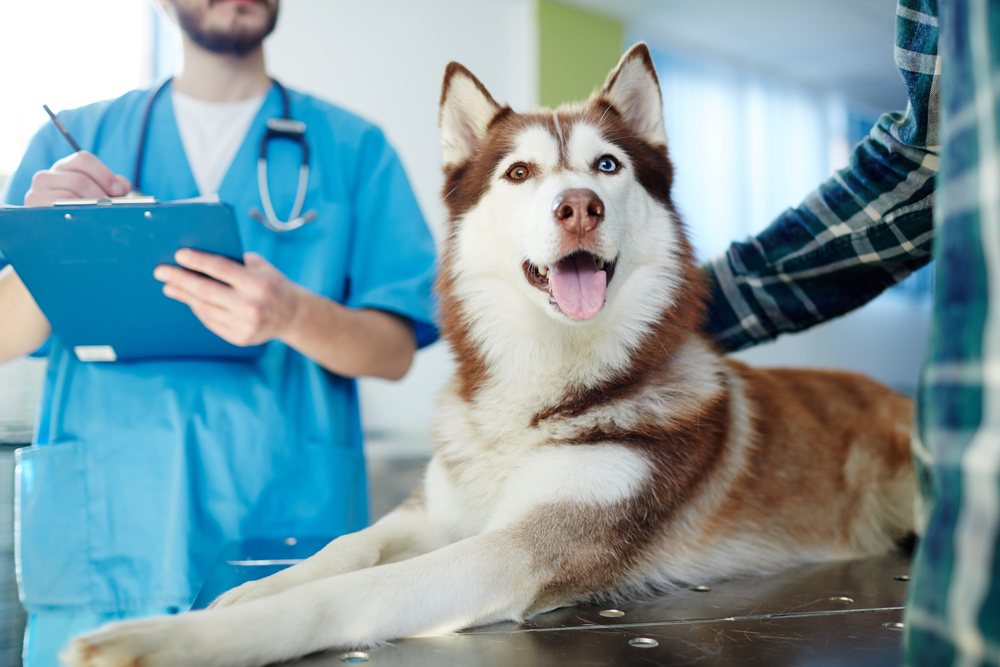AAHA-accredited practices are held to the highest standards, allowing them to provide the highest quality of care to their patients—your pets. Becoming an accredited practice is no easy task, and, in fact, only 12% to 15% of U.S. and Canadian veterinary practices are AAHA-accredited. Learn what AAHA accreditation entails, and the benefits to you and your furry family members.
What does it mean to be AAHA-accredited?
AAHA accreditation generally “helps make good hospitals great.” Practices interested in accreditation must undergo a lengthy application process, following a set of approximately 900 recommended standards that are considered mandatory or points-based. These standards include best practices in areas such as patient care, safety, recordkeeping, facility safety, and team morale.
When a veterinary hospital applies for accreditation, they undergo a rigorous evaluation by an AAHA practice consultant. After passing the evaluation, the practice is evaluated a year later, and every three years after that. Most importantly, this process is completely voluntary.
Why did Logan County Animal Clinic pursue AAHA accreditation?
Despite the challenging application process and stringent standards, becoming an AAHA-accredited practice is a truly rewarding experience. Our team enjoys a sense of pride and accomplishment after working toward a common goal, and we have confidence in knowing we have elevated the quality of our patient care, hospital safety, and day-to-day functioning. We’ve always focused on providing the best care for pets, and our AAHA accreditation holds us accountable to the highest standards in veterinary care and client service.
What are some examples of required AAHA standards?
Of the approximately 900 AAHA standards, a few of the mandatory standards include:
- Anesthetic agents must be administered by a veterinarian or trained practice team member under the supervision of a veterinarian.
- Practice members must wear protective apparel in the radiology room during X-ray exposure.
- All surgical patients must receive appropriate pain management.
- Oxygen must be available for compromised patients.
- Surgical suites must be in a separate, closed area that is used for aseptic procedures only.
- Controlled substances must be securely locked away.
What does AAHA accreditation mean for your pet?
The fact that an AAHA-accredited practice has undergone the demanding requirements for accreditation conveys a dedication to excellent patient care and practice function. You and your pets can rest easy knowing our practice team is committed to providing your pet with outstanding care.
Do pet owners prefer AAHA-accredited practices?
A 2016 study revealed that an overwhelming number of pet owners preferred AAHA-accredited practices. Some key points from the study include:
- 85% of pet owners would choose an AAHA-accredited hospital over a nonaccredited one
- 58% of pet owners are willing to pay more to use an accredited facility
- 63% of pet owners would drive farther to get treatment at an accredited practice

Are any other area hospitals AAHA-accredited?
Logan County Animal Clinic is one of four veterinary clinics within a three-mile radius, and we’re the only one that is AAHA-accredited.
Contact our veterinary team to learn more about AAHA accreditation and what it means for you and your pet.







Leave A Comment